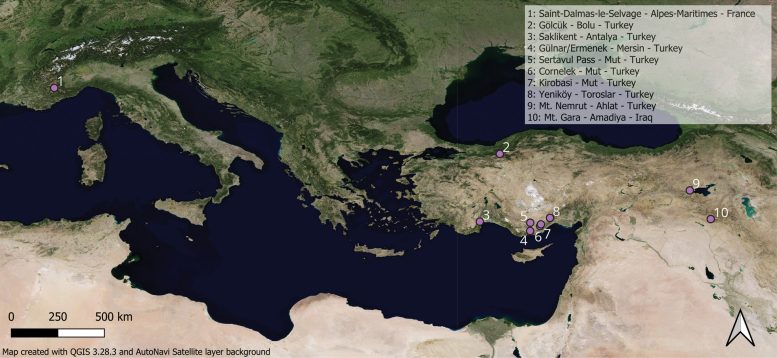Hoplitis onosmaevae, a new bee species discovered in the French Alps and parts of Turkey and Iraq, exhibits unique ecological adaptations and faces conservation challenges due to its highly specialized habitat requirements. A team of European researchers has discovered a new species of osmia bee with an unusual geographical distribution.
hoplite onosmaevae it is now found only in Mercantour National Park in the French Alps and scattered mountainous areas of Türkiye and northern Iraq. The distance of more than 2,000 km between these areas highlights the significant biogeographic difference.
Described in an open magazine Alpine EntomologyA new species of bee exhibits unique ecological traits, such as different nesting behaviors in dead trees. Pollen is believed to be collected only from species onosmaIt has a long proboscis, which is probably a device for collecting nectar from the long-tubed flowers of this genus.
Highly fragmented distribution hoplite onosmaevae It has important protective effects. The species likely has a very narrow ecological range, making it highly sensitive to future habitat changes, such as changes in agricultural practices or climate change.

“Taking into account the small number of known populations of this species in France is crucial for conservation purposes,” says lead author Mathieu Aubert, a freelance entomologist and member of the Observatoire des Abeilles association. “This research highlights the incredible diversity of wild bees and that even in Western Europe we still have much to learn from our environment,” he continues.
Researchers highlight need for detailed conservation plans in southwestern Alps to ensure survival hoplite onosmaevaegiven its highly specialized ecological niche and consequent vulnerability to habitat change. Their recommendations for first prevention steps can be found in the full research article.
Source: Port Altele
